Why parents are ditching their cars
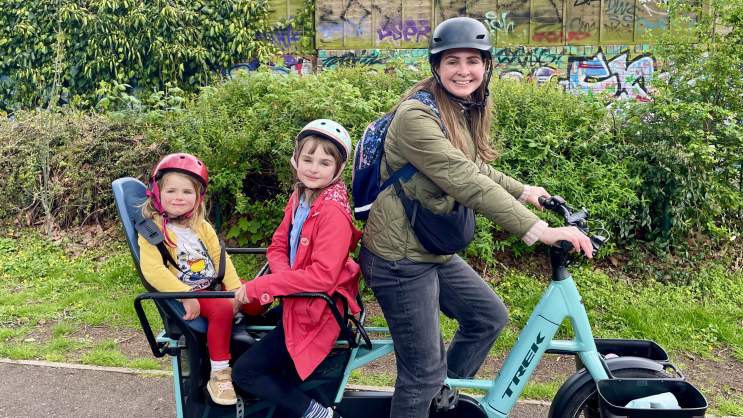
Living without a car could feel like a bold and even frightening decision for a generation familiar with seeing multiple vehicles parked outside a single home.
But for dozens of parents, who have decided to go car-free to do their bit to save the planet, the change has been easier than feared.
Instead of relying on cars for the school run and weekly shop, more and more families are deciding to cycle or walk due to concerns over climate change.
The latest government data shows the number of car driver trips in 2022 was 31% lower than levels seen in 2002.
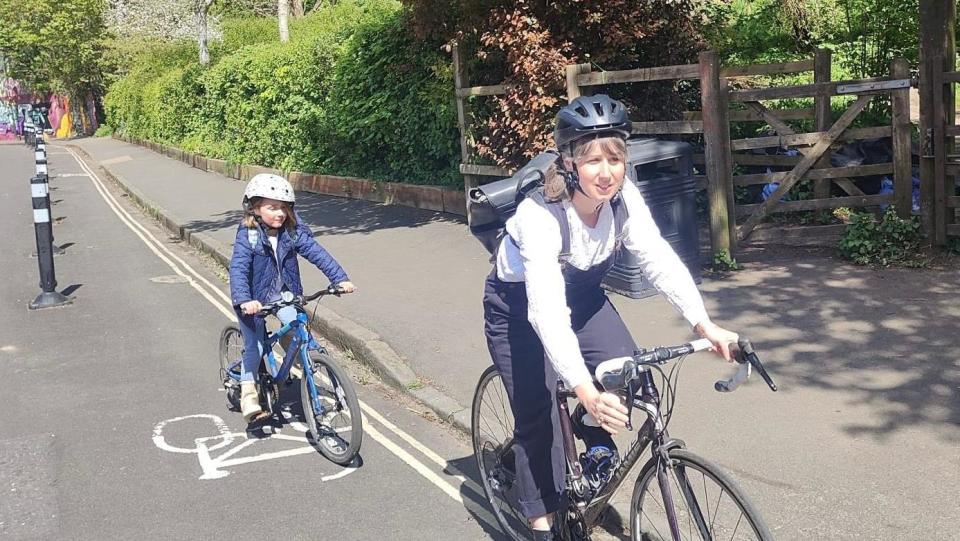
Some say they are saving around £1,000 a year from not paying for fuel and car running costs.
Jayne Wade, who lives in Easton, "burst into tears" when she first started researching the climate crisis.
Despite being aware of it most of her life, it was after her daughter was born that she began reading what climate scientists were saying.
Jayne estimates she saves around £100 on transport monthly by choosing a bike instead of a car.
Most of her food is bought from local shops or she looks for deliveries by electric vans.
Her daughter suffers from asthma which is made worse by car emissions.
"If a large vehicle goes by it can often trigger a coughing fit and I find that quite scary and triggering," she said.
"She was hospitalised last winter with a related wheeze and it was awful sitting through the night with her while she couldn't breathe.
"The ward was filled with kids who had similar chest issues."
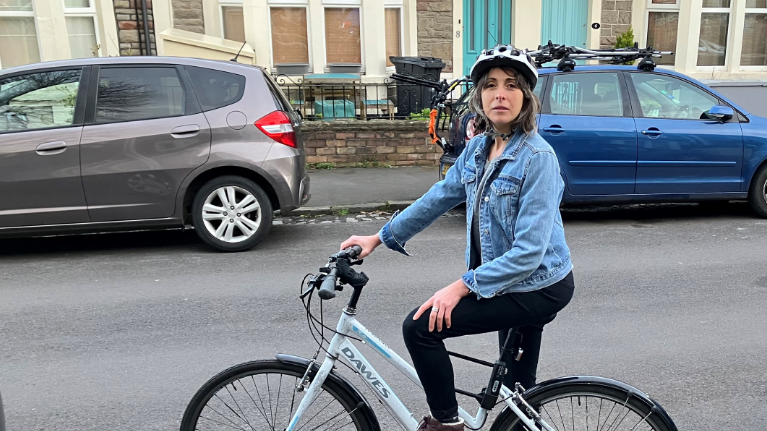
Theatre producer, Chloe Naldrett, said it was daunting when she first began cycling in Bristol with her boys, who are now aged 11 and 14, but their confidence soon grew.
"Lockdown was great for us to get used to cycling as there were hardly any cars," the 44-year-old said.
"We are very confident now - my eldest is happy to cycle to the gym by himself.
"Most motorists are considerate of cyclists, but there are occasional exceptions. I’ve had a couple of close calls, either from a close pass or a car door unexpectedly swinging out, and I’m always on guard, especially when I’m with the kids," she said
"The majority of car journeys are less than two miles.
"So when it comes to cutting our own carbon footprint, cutting down those short car journeys is one of the easiest things we can do, along with eating less meat and dairy."
Although initially worried about how she would purchase her weekly groceries, Chloe now shops locally with a wheelie trolley and says it "feels really easy".
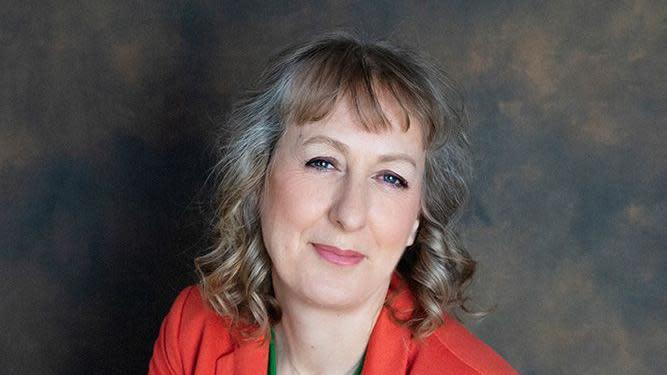
Juliet Jain has lived her whole life without a car. Growing up in rural Somerset was "challenging".
She was unable to attend afterschool clubs and had to miss out on events with friends. To travel to London, her family would have to arrive at the station hours before the train because there were only a few buses a day.
In 1997, her brother was killed while cycling along a rural road in Gloucestershire near where he lived.
"This was the most awful thing could ever happen," the senior research fellow said.
"But it made me more determined to carry on cycling."
When she had kids, who are now aged 18 and 21, she found it difficult travelling by bus from her home in Downend, South Gloucestershire.
Her pram was often too big to fit on buses and this meant she had to plan her journeys carefully.
"We could rarely go to places like zoos," she said. "If we went anywhere like that it would be whole day trip so we had to really make it worthwhile."
Her husband is from the north east of England and they have only been back once in the last ten years.
"Travelling by train with the whole family is expensive," she said. "It's a lot cheaper to all jump into the car."
As well as wanting to minimising her carbon footprint, Dr Jain says there is not enough space for cars on our roads.
'Backlash'
Myra Foster, who works in public health, has never had a car because she has always lived in cities.
But, she feared once she had children she might find it difficult travelling around Bristol.
"It was harder once we had my second child," she said. "I was still using a child seat and my oldest was able to cycle by then."
Not buying a car has also had a number of benefits for Myra, including getting to know her local area more intimately.
"Instead of a trip to the supermarket being this horrible thing where you jump in your car and sit in queues, I cycle through parks and it turns into something enjoyable," she said.
"When we go to the park, we walk or cycle there and often see our friends on the way."
Although most of her family and friends are very supportive, she has met with some backlash.
"Some say I could never do that or why would you not want to drive? It’s pretty standard to get some funny looks from people when I tell them we don’t drive," she said.
Like many parents, Myra is concerned about the climate crisis.
"Our choice to not own a car is very much to do with not wanting to live in a way that contributes to the destruction of our planet," she added.
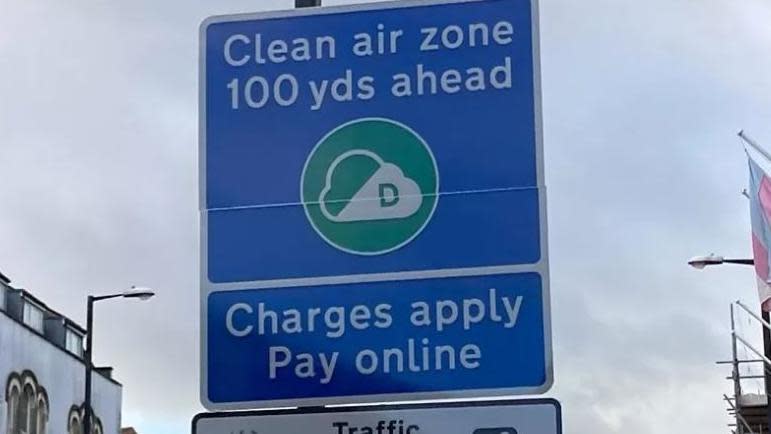
Jayne added: "It's really about people just doing what they can.
"We find that once you adopt a mindset of not having a car, you just get used to working a little differently – and it's not that difficult."
The 42-year-old urged people to inform themselves about the climate crisis.
"Everybody will want to do whatever they can because this is an emergency.
"If we can find alternative solutions we should use them.
"There are no public health messages around this like there was for Covid.
"But this is not going to get any better, it's going to get a lot worse."
300 deaths a year
Since Bristol's Clean Air Zone was introduced in November 2022, air pollution inside the zone has decreased by 13 per cent.
But, toxic air pollution is still estimated to contribute to 300 deaths a year in Bristol.
Globally, 2023 was the warmest year on record - at 1.48C above the pre-industrial baseline.
The figure is perilously close to 1.5C agreed at the Paris Agreement in 2015.
Even at 1.5C, the risk to crops could lead to a global food crisis and push us past crucial climate tipping points, such as Arctic ice melt and permafrost thaw.
Instead, focusing on getting net temperature change to zero, and then into a period of cooling, could be a fairer approach, as policy analysts at the thinktank Chatham House have argued.
Follow BBC Bristol on Facebook, X and Instagram. Send your story ideas to us on email or via WhatsApp on 0800 313 4630.
